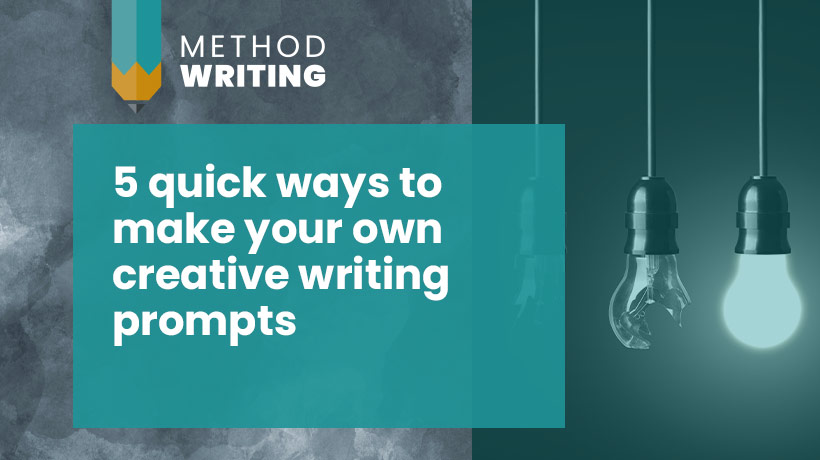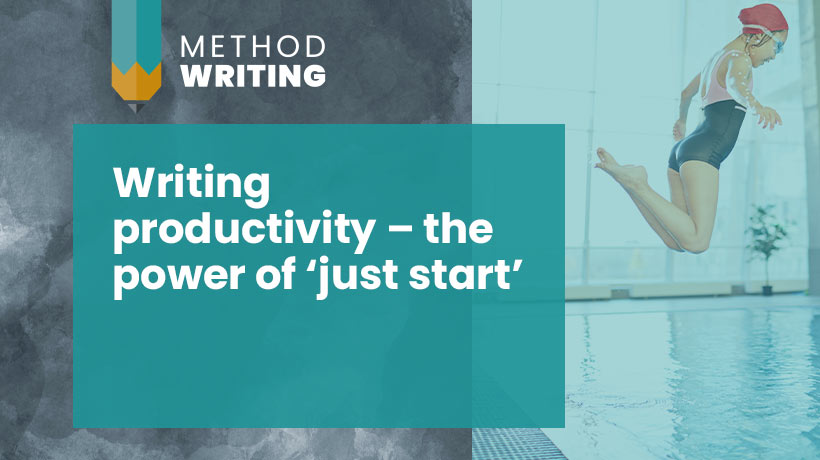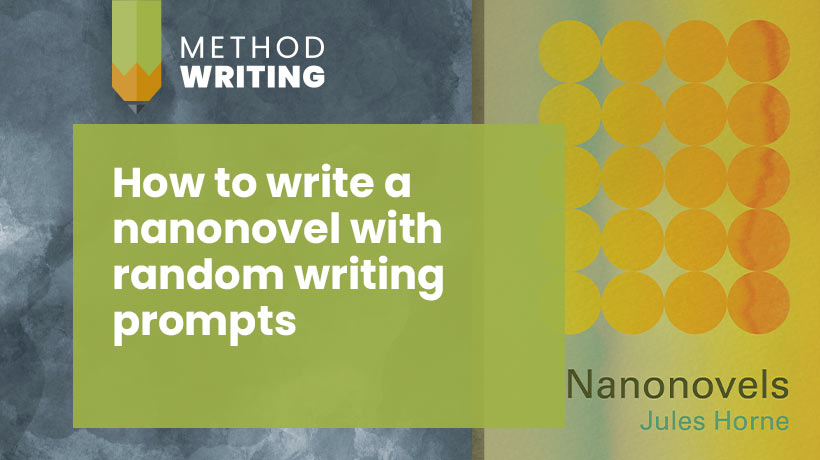Writing productivity – the power of ‘just start’
If you’ve ever struggled with writing productivity, here’s a powerful tip. “Just start!” works for all areas of life, and writing fiction and non-fiction. It has proved valuable to me time and again. I don’t believe in writer’s block, but I do struggle with distraction and noise, and need to pull focus. So here are few proven tricks to try.
The “just start” experiment
I learned “just start” from a friend, who got it from his very wise father. Sam wanted to build out his attic to make a bedroom for his kids. It was a huge project, and he was overwhelmed by it. His dad had a lot of experience in carpentry, so Sam rang him up. Instead of the “do this, do that” advice he expected, he got just those two words: “Just start.” So he did. And it got him over the threshold, and he built his project.
It sounds incredibly simple, almost naïve! But what’s brilliant is, “just start” bypasses reason. There’s no need to think through why we’re struggling with block – perfectionism, excuses, lack of focus, lack of time, planning, where to start…
We just switch gear, and do something. Take a first step. It doesn’t matter what it is. There are endless ways in. Figure it out by doing.
Fear of thresholds
This is such a common emotion that in Germany, there’s even a dedicated word for it. Schwellenangst. Threshold fear. With writing, you might call it fear of diving in. Your reasons for threshold fear will be yours alone. It might just be difficulty with focus and climbing inside your internal mindscape. Or space or time issues. You’ve probably developed tricks and rituals to help. But in the meantime, you don’t really need to understand the reasons. Just know that it’s a common feeling, and “just start” can get you beyond it.
Embrace “scratchy” writing
Scratchy notes, jottings and sketches are a good way to “just start”. Scratchy techniques let you begin in a non-linear way, more like your darting brain. They also get round the issue of perfectionism and “analysis paralysis”. Try combining this with a limited time window (see below).
Write non-linear
There’s no need to write in order, or to complete every detail of your outline before starting to write sentences. Once you have a few notes down, pick whatever section looks doable, and start with that. If it’s a website, I might start with the contact page, just to kick off momentum. If you’re writing a script or story, you could choose a moment between the characters. It might be in the middle of the story, or near the end. Especially if you’re a perfectionist editor, the beginning isn’t always the most productive place to start, as you can get stuck agonising over nuances. Your editing brain will get its chance later in the process.
Avoid technology, go analogue
If you struggle to get started writing with a keyboard, switch to paper and pencil or pen. I always start on paper, and migrate quickly to keyboard once I’m in flow. The issue for me isn’t the distraction of apps and emails. It’s that paper and pencil feels more connected and immersive. Technology somehow has a stronger degree of “threshold”. Also, keyboards and screens demand a linear style of writing, and I find it easier to start with loose notes and jottings.
Use headphones or ear defenders
Industrial ear defenders are fantastic if you like silence to write. Note, you don’t need expensive Bose noise-cancelling headphones. Get simple road worker ear protectors, which are analogue, inexpensive, and last for years. I find them an enormous help with concentration and focus.
Start ridiculously small
Kickstart momentum by doing something so small, it’s ridiculous. Just open the document. Read the first paragraph. Write for five minutes. The trick is to get across the invisible threshold. Once you’ve started, it’s easier to keep going. I once did 100 days of writing stories for only five minutes, called Nanonovels. If you’d like to try the same experiment, pick up a Nanonovel journal.
Use time tricks
Writers are often familiar with pomodoros – short writing sprints. Using deadlines rather than time chunks can be just as powerful. When I worked in a radio studio, the clock ticking inexorably to the hour was a great motivator. No news stories written meant dead air! So we had to produce something. Think back to time-blocks scenarios that you’ve found productive. Try pretend exams or broadcasts, group writing sprints, or use the dramatic technique of a countdown clock.
Play and gamification
Writing games and playfulness can help to bypass overthinking and perfectionism. Try gamification apps such as Write or Die or Productivity Challenge. Make models of your characters so you can work out different groupings in scenes. Draw timelines to plot your story structure. Draw a random creative card on the Oblique Strategies site, devised by musicians Brian Eno and Peter Schmidt.
Change things up
Some writers thrive on routine, others need the stimulus of change. Sometimes a change of scene, shifting your room around, walking a different route or going to an unfamiliar café can help you by shaking your brain up just enough to fire slightly differently. Claire Wingfield’s 52 Dates for Writers has some fun suggestions.
Every writer is different. Try some of the above suggestions, and see what works for you. But above all, just start!


